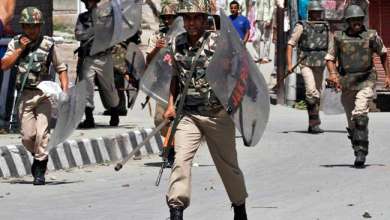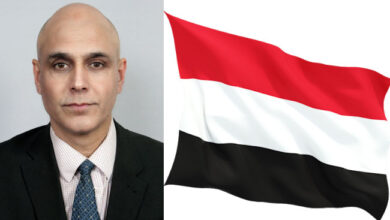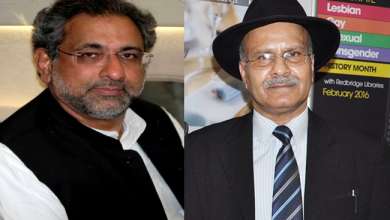Administration of Justice in Azad Kashmir and Corrective Measures

Written By: Dr. Syed Nazir Gilani
Administration of Justice in Azad Kashmir has been struck by scandals after scandals at a time, when it is badly needed to enforce the provisions of right of self-determination and rule of law. Unfortunately it has dispatched home a very able judge chief justice High Court Mr.
Justice M. Tabassum Aftab Alvi after many years of service, on an administrative ground, apparently mala fide, without pension. Justice Alvi has remained a man of integrity and has cast many leading judgements. A review is pending.
Another scandal that has shaken the foundations of the discipline of justice, is a petition brought against a senior lawyer, for benefitting from a fake law degree and defending some newly appointed judges, whose appointments have been challenged. It means there may be
many more fakes in the system and all would end up in a quid pro quo.
A petition has been rushed to International Law and Justice Commission of the UN and to International Court of Justice in Hague on the prevailing situation of suspicion surrounding the legal system in Azad Kashmir. How the two UN bodies react to the petition filed by a
Canada based organization remains a surprise. Whatever, the merits of the case, it does not reflect well on the discipline of justice in Azad Kashmir. Bench and the Bar are under clouds of mistrust and bad doing. International Bar Association London has been copied into this
correspondence.
We are engaged in realising the right of self-determination and in exposing India for her human rights violations in Indian occupied Kashmir. It does not augur well, if the world is told about our bad habits in Azad Kashmir. JKCHR has argued the case of independence of
Judges and Lawyers in Pakistan at the UN in its UN GA document 42 dated 7 June 2007 and the case of independence of Judges and Lawyers in Azad Kashmir at the UN in its UN GA document 16 dated 31 August 2007. People of Kashmir and advocates of their case need to remain credible at the UN and at all forums.
The judiciary in Azad Kashmir has its problems and these have started surfacing due to the reach and interest of social media. The habitat has had a history of good judges and administration of justice. These judges released political prisoners on a Rupee one bond during martial law, took keen interest in habeas corpus applications and in the rights of the prisoners, regardless of the faith or political view or origin of the prisoner.
Administration of Justice in AJK needs to correct itself and serve the principle of substantive justice. People of the area engaged in their struggle for the right of self-determination are bound to come into conflict with the State, on the interpretation of UN Resolutions on Kashmir, their rights and obligations. As an easy way out the Higher Courts in Azad Kashmir have given up on their original jurisdiction to take a suo moto action in public interest.
Without asserting this jurisdiction, Courts may not be serving the administration of justice but are seen keeping their hands in the State gloves. The argument that Constitution Act 1974 does not confer this jurisdiction on these Courts has no merit. In fact the judges avoid to
tangle with the State and this adds to the disservice of public interest. It is a serious misinterpretation of the Act 1974.
Courts of Azad Kashmir have a duty to interpret the Constitution and fix where things are unconstitutional or at war with the basic principles of justice or clash with human nights of a citizen. Why should a constitution restrain a superior court (High Court or Supreme Court)
from exercising its suo moto powers in public interest? As a start the Courts have to examine the merits of INSTRUCTIONAL role of Government of Pakistan in Act 1974.
It is the lack of knowledge or lack of proper training in the interpretation of statutes that Azad Kashmiri judiciary and lawyers, do not want to over sweat themselves on this principle of jurisprudence. The Act 1974 is proposed by the Government of Pakistan “in the discharge of
its responsibilities under the UNCIP Resolution”.
In other words Government of Pakistan has used delegated or assumed powers under UNCIP Resolutions in proposing the Act 1974. Responsibility is an obligation to do something. It is the duty that a person is required to perform in organizational tasks, assignments or functions. At the same time, it is also worth mentioning that while authority can be delegated, responsibility cannot be delegated.
Government of Pakistan has used the responsibilities conferred upon it and not the original authority of UNCIP Resolutions. A “power” is an authority to act, whereas a “duty” is an obligation. A duty compels to act, or prohibits from acting in certain situations. A power, on
the other hand, allows to act in a certain way, subject to discretion. It is important to point out that Authority is the power to give orders and get it obeyed or in other words it is the power to take decisions. Responsibility means state of being accountable or answerable for any
obligation, trust, debt or something or in other words it means obligation to complete a job assigned on time and in best way.
Courts in Azad Kashmir have never so far even touched upon the literal interpretation of “responsibilities of Pakistan under UNCIP Resolutions”. Responsibility means state of being accountable or answerable for any obligation that Pakistan has undertaken. UNCIP
Resolution would never mean to prejudice or hurt the discipline of administration of justice in Azad Kashmir. Governments in Pakistan shall have to uphold the international standards in the administration of justice in Azad Kashmir. More so, Government of Pakistan can’t deny
the people or Courts in Azad Kashmir, what is available to people and Courts in Pakistan.
Responsibilities assumed under UNCIP Resolutions in Azad Kashmir, raise the burden of responsibility and accountability of the Government of Pakistan.
The author is President of London based Jammu and Kashmir Council for Human Rights –NGO in Special Consultative Status with the United Nations.





